56th Academy Awards
The 56th Academy Awards were presented April 9, 1984, at the Dorothy Chandler Pavilion, Los Angeles, hosted by Johnny Carson.
| 56th Academy Awards | |
|---|---|
 | |
| Date | April 9, 1984 |
| Site | Dorothy Chandler Pavilion, Los Angeles |
| Hosted by | Johnny Carson |
| Produced by | Jack Haley Jr. |
| Directed by | Marty Pasetta |
| Highlights | |
| Best Picture | Terms of Endearment |
| Most awards | Terms of Endearment (5) |
| Most nominations | Terms of Endearment (11) |
| TV in the United States | |
| Network | ABC |
| Duration | 3 hours, 42 minutes |
| Ratings | 38.0 (Nielsen ratings) |
The Best Supporting Actress winner this year was unique; Linda Hunt won for her role as Billy Kwan – a male Chinese-Australian photographer – in Peter Weir's The Year of Living Dangerously, making her the first actor to win an Oscar for playing a character of the opposite sex.
Gordon Willis, a respected cinematographer most famous for his work on The Godfather, The Godfather Part II, and Woody Allen's Manhattan, received his first Best Cinematography nomination for Zelig.
Joe I. Tompkins was the first African-American to be nominated in Best Costume Design.
James L. Brooks won three Academy Awards, as producer, director and writer of Best Picture winner Terms of Endearment. Of its other eight nominations, two were for Best Actress; Shirley MacLaine won over Debra Winger in that category. The movie won five Oscars in total, the fifth being Jack Nicholson for Best Supporting Actor, his second career win.
This ceremony ended with Sammy Davis Jr. and Liza Minnelli leading the crowd in "There's No Business Like Show Business" in tribute to Ethel Merman, who had died a month and a half before the ceremony. The performance occurred over the closing credits of the broadcast.
The Award for Best Makeup was not given this year.
While this year's ceremony was the first without the recitation of the Academy's voting procedure at the beginning of the telecast — it was moved to the end credits — those of the accounting firm Price Waterhouse who were responsible for tabulating the results and guarding their secrecy were still introduced.[1]
Awards
Winners are listed first, highlighted in boldface and indicated with a double dagger (![]()
Honorary Academy Award
Jean Hersholt Humanitarian Award
Special Achievement Academy Award
- Return of the Jedi – Richard Edlund, Dennis Muren, Ken Ralston and Phil Tippett for Visual Effects
Nomination announcements
The filmmakers and studio executives were very surprised by the five Academy Award nominations for Tender Mercies, which was released ten months before the nominations were announced and had received little campaigning. Universal Studios had already previously sold the video rights for Tender Mercies based on their lack of confidence in the film following poor test screenings; the studio was therefore unable to redistribute Tender Mercies after the Oscar nominations were announced, and cable companies ran the film on television one week before the Academy Award ceremony.[4]
Ceremony
When screenwriter Horton Foote won a Best Adapted Screenplay Oscar for To Kill a Mockingbird, he was not present at the 1963 ceremony to collect it because he did not believe he was going to win and did not attend. As a result, Foote made sure he was present for the ceremony when he was nominated for Tender Mercies; he won that Oscar as well, this time for Best Original Screenplay.[4]
This was the first awards show in history to use a computer-generated graphic timer clock to notify awardees how much time they had to give their speeches before time was up. The countdown clock was displayed on a large screen TV in front of the stage. It was controlled by the assistant director who had the discretion to activate it or not depending on the importance of the award and, for this show, was programmed for 30 seconds. This has since become a staple element of almost all award shows and is often followed up by the music when the awardee ignores the clock.
Presenters and performers
The following individuals, listed in order of appearance, presented awards or performed musical numbers.
Presenters
| Name | Role |
|---|---|
| Hank Simms | Announcer of the 56th Academy Awards |
| Gene Allen (AMPAS President) | Gave opening remarks welcoming guests to the awards ceremony |
| Timothy Hutton Mary Tyler Moore | Presenters of the award for Best Supporting Actor |
| Kevin Bacon Daryl Hannah | Presenters of the award for Best Sound Effects Editing |
| Jane Alexander Michael Caine | Presenters of the Short Subjects Awards |
| Joan Collins Arnold Schwarzenegger | Presenters of the Technical Achievement Awards |
| Robert Wise | Presenter of the award for Best Film Editing |
| Christie Brinkley Michael Keaton | Presenters of the award for Best Sound |
| Anthony Franciosa Joanna Pacula | Presenters of the award for Best Cinematography |
| John Gavin Jack Valenti | Presenters of the award for Best Foreign Language Film |
| Holly Palance Jack Palance | Presenters of the Documentary Awards |
| Cheech and Chong | Presenters of the award for Best Visual Effects |
| Tommy Tune Twiggy | Presenters of the award for Best Costume Design |
| Ricardo Montalbán Jane Powell | Presenters of the award for Best Art Direction |
| Jennifer Beals Matthew Broderick | Presenters of the award for Best Original Song |
| Ray Bolger Gene Kelly | Presenters of the award for Best Original Score |
| Neil Diamond | Presenter of the award for Best Adapted Score |
| Dyan Cannon Gene Hackman | Presenters of the award for Best Supporting Actress |
| Mel Gibson Sissy Spacek | Presenters of the Writing Awards |
| Frank Sinatra | Presenter of the Jean Hersholt Humanitarian Award to M. J. Frankovich |
| Richard Attenborough | Presenter of the award for Best Director |
| Jackie Cooper George McFarland | Presenters of the Honorary Award to Hal Roach |
| Dolly Parton Sylvester Stallone | Presenters of the award for Best Actor |
| Rock Hudson Liza Minnelli | Presenters of the award for Best Actress |
| Frank Capra | Presenter of the award for Best Picture |
Performers
| Name | Role | Performed |
|---|---|---|
| Quincy Jones | Musical arranger and conductor | Orchestral |
| Irene Cara The National Dance Institute | Performers | "Flashdance... What a Feeling" from Flashdance |
| Herb Alpert Lani Hall | Performers | "Maniac" from Flashdance |
| Mac Davis | Performer | "Over You" from Tender Mercies |
| Donna Summer | Performer | "Papa, Can You Hear Me?" from Yentl |
| Jennifer Holliday | Performer | "The Way He Makes Me Feel" from Yentl |
| Sammy Davis Jr. Liza Minnelli | Performers | "There's No Business Like Show Business" |
Multiple nominations and awards
|
These films had multiple nominations:
|
The following films received multiple awards.
|
See also
- 41st Golden Globe Awards
- 4th Golden Raspberry Awards
- 1983 in film
- Submissions for the 56th Academy Award for Best Foreign Film
- 26th Grammy Awards
- 35th Primetime Emmy Awards
- 36th Primetime Emmy Awards
- 37th British Academy Film Awards
- 38th Tony Awards
References
- The Opening of the Academy Awards: 1984 Oscars on YouTube. Retrieved March 2, 2016.
- "The 56th Academy Awards (1984) Nominees and Winners". oscars.org. Archived from the original on 2014-11-11. Retrieved 2011-10-09.
- "The Official Academy Awards Database". Academy of Motion Picture Arts and Sciences. Select "1983" in the "Award Year(s)" drop-down menu and press "Search".
- Bruce Beresford, Robert Duvall, Horton Foote, Allan Hubbard, Gary Hertz (director), Tess Harper (2002-04-16). Miracles & Mercies (Documentary). West Hollywood, California: Blue Underground. Archived from the original on 2005-02-06. Retrieved 2008-01-28.
External links
| Wikimedia Commons has media related to 56th Academy Awards. |
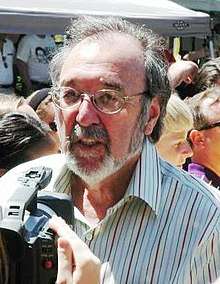
.jpg)
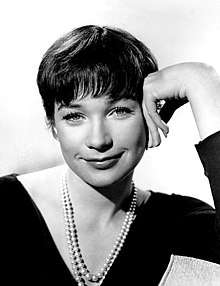
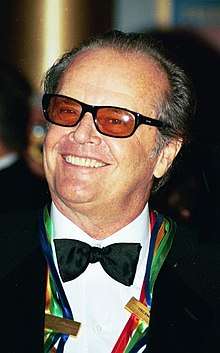
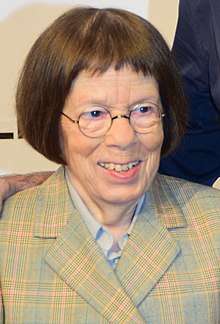
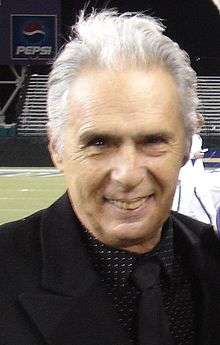
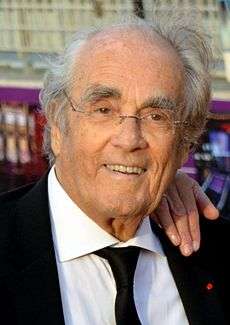
.jpg)